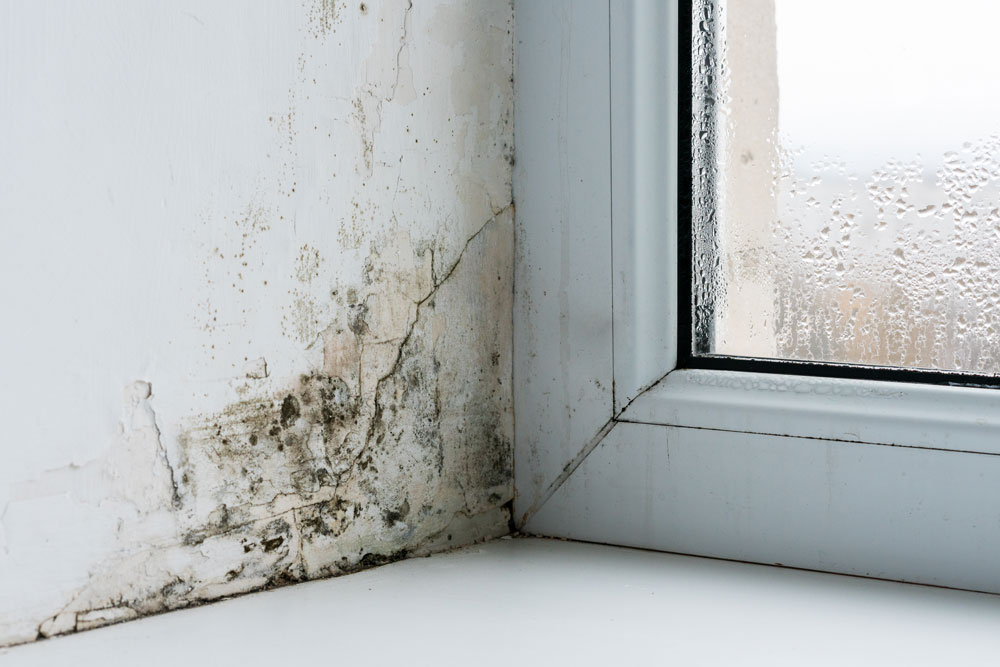How to Prevent Mould in Winter

CONTENTS
- Is mould worse in winter?
- The effects of mould
- How to remove mould from your home
- How to prevent mould in growth the winter
- Get in touch
Mould is a common problem in the UK thanks to our cold, wet climate. During winter, mould tends to get worse as temperatures plummet and our weather gets even damper. Fortunately, there are plenty of ways to prevent mould growth in your home during the colder season.
If you need mould removal services, ICE Cleaning can help. Our Dewpoint-accredited technicians can carry out our nine-stage mould treatment in both domestic and commercial properties, and even eliminate mould in the air.
Keep reading to learn more about why mould gets worse in the winter and how to prevent it.
Is mould worse in winter?
Mould grows in environments that contain excess moisture. It is usually caused by:
- High humidity
- Condensation
- Rising and penetrating damp
- Poor ventilation and air flow
Our homes are more likely to become damp and poorly ventilated in the winter as temperatures drop and we keep our windows shut. This enables humid, stale air to get trapped in our properties, leading to condensation on cold surfaces like windows and walls.
In winter, we also like to crank up the heating. Warm air contains more moisture than cooler air, thereby providing a favourable environment for mould growth and increasing the chances of condensation. You can find out more about what causes mould in the home in this blog.
The effects of mould
Mould in your home is not just unsightly - it can cause damage to both property and health. Mould exposure can lead to a range of health problems including allergic reactions, asthma attacks in asthmatics, lung infections, and even sick building syndrome.
People with weakened immune systems or respiratory conditions are particularly vulnerable to serious reactions to mould. Young children and elderly people are susceptible to them, too.
The fungus can also cause your property and possessions to deteriorate over time. Mould feeds off organic materials like wooden furniture, upholstery, and some building materials and might slowly eat into them.
Aside from the visual blight of patches and spots of mould, mould produces an unpleasant damp, musty odour, as well. Some may even make your home smell like fermenting alcohol or rotten eggs.
How to remove mould from your home
Removing mould is a dangerous, difficult process that should always be left to professional cleaners. Firstly, cleaning mould can put you at high risk of touching or inhaling the spores. Personal protective equipment is required to protect your health.
The wrong cleaning method may also not be that effective, such as scrubbing the surface with bleach or spraying it with vinegar. Any left behind will grow back and continue to spread around the property. Some chemicals may be too harsh for certain surfaces, like fabric, and could do more damage.
Professional mould cleaners will have the specialist equipment and products for a safe, thorough mould removal. They can even diagnose the specific cause of the mould in your home and advise on how to prevent it from returning in the future.
Specialists will isolate the affected area, as well, to ensure disturbed mould spores don't spread across your property during cleaning.
How to prevent mould in growth the winter
Keep your home well-ventilated
Even when it's chilly outside, crack open a window to let moist air escape and bring in some fresh air. For an extra hand in combatting condensation, consider investing in dehumidifiers to reduce humidity levels. Make sure you open a window while cooking and washing as these activities produce a lot of steam.
Keep the heating on
Maintain a consistent temperature at home to ensure surfaces don't get too cool. This will reduce the chances of condensation forming on the surfaces in your home. Having the heating on high and then letting it cool down will cause the water vapour in the air to condense, as well, leading to damp.
Make sure there is a space between furniture and the wall
Stale pockets of air can get trapped behind furniture if too close to the wall. Allowing air flow can unblock the humid air and prevent damp forming.
Clean your home regularly
Mould can feed off dirt, dust, and dead insects, so regular cleaning can remove its food source, and stop it growing and spreading so quickly.
Avoid drying clothes indoors
This can release water vapour into the air and make the air more humid. Use a drier if possible, or make sure the area is well ventilated while the clothes dry.
Get in touch
We operate nationwide, 24/7, 365 days a year, including bank holidays. If it's an emergency, we can be on site within hours of your call.
To book your mould cleaning service, speak to our team on 0208 066 0360 or enquiries@icecleaning.co.uk. They will be happy to book in your free site survey and provide you with a no-obligation quote.

Speak with me today,
I’m here to help
By asking you a few questions either via phone or email I can immediately provide a realistic estimation of the cost.
You’re in good company. We’ve cleaned for the following commercial clients… View all

Why choose us?
- Cater to a wide variety of cleaning situations
- Nationwide coverage, available 24/7
- Cater to commercial and domestic clients
- Free survey provided prior to quotation
- Emergency response team
- Offer a bespoke service designed to suit all your needs
- All technicians hold professional health and safety qualifications, including BICSc, IOSH, Dewpoint Professional & Safe Contractor
We’re fully accredited
We place best practise, professional expertise and health and safety at the core of our business. We’re fully compliant with all legal obligations. You can view a list of our accreditations below, or visit our Health & Safety page for more information.











-RGB-small.1707319151.jpg)




















